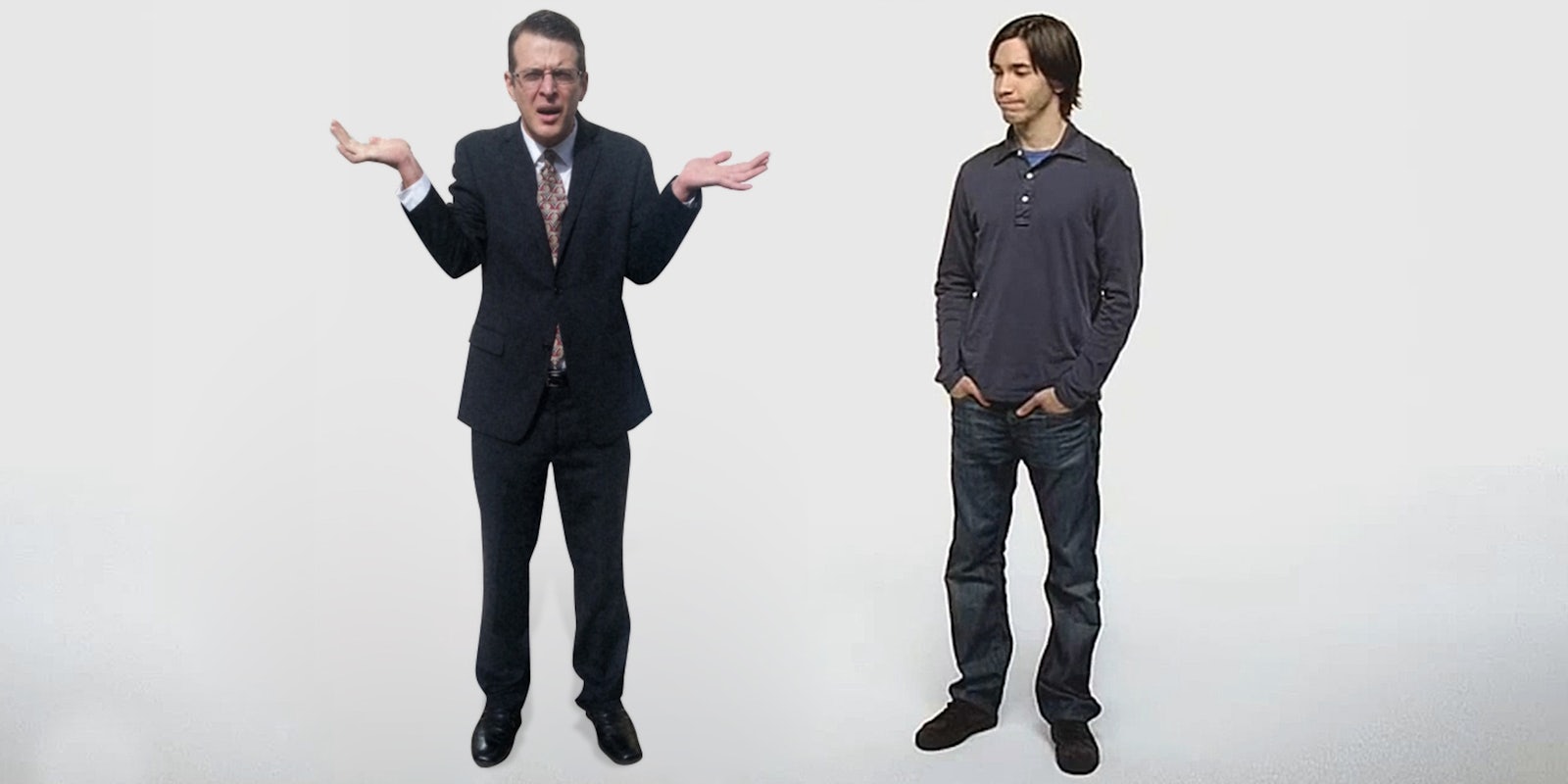For the past year or so, I’ve carried a keyboard with me everywhere. The “R” and “T” keys on my Asus laptop had succumbed to one too many working lunches, and despite the awkwardness of lugging a clunky piece of equipment across conferences and airports, an external replacement was a quick and relatively cheap fix.
That keyboard was like some sort of technological scarlet letter, signifying a far more embarrassing stain on my professional reputation: I’m 29 years old, the managing editor of an Internet news publication, and I’ve never really used a Mac.
It’s not that I fear change—I’m about to move for the second time in two years next month, and I could care less about updates to Facebook’s News Feed or Spotify’s user interface—it’s that the conversion to a Mac doesn’t end with a new computer. It’s an entire lifestyle, a branded and streamlined approach to seemingly every aspect of one’s creative and social pursuits. It changes the way you store your data, the apps you use, and how you navigate your own hard drives.
Apple makes you part of the fandom, and once you’ve taken the plunge, there’s no going back.
And yet earlier this month, pushed by nearly everyone at the Daily Dot, I finally pulled the trigger: I bought a new MacBook Air, and I wish I hadn’t.
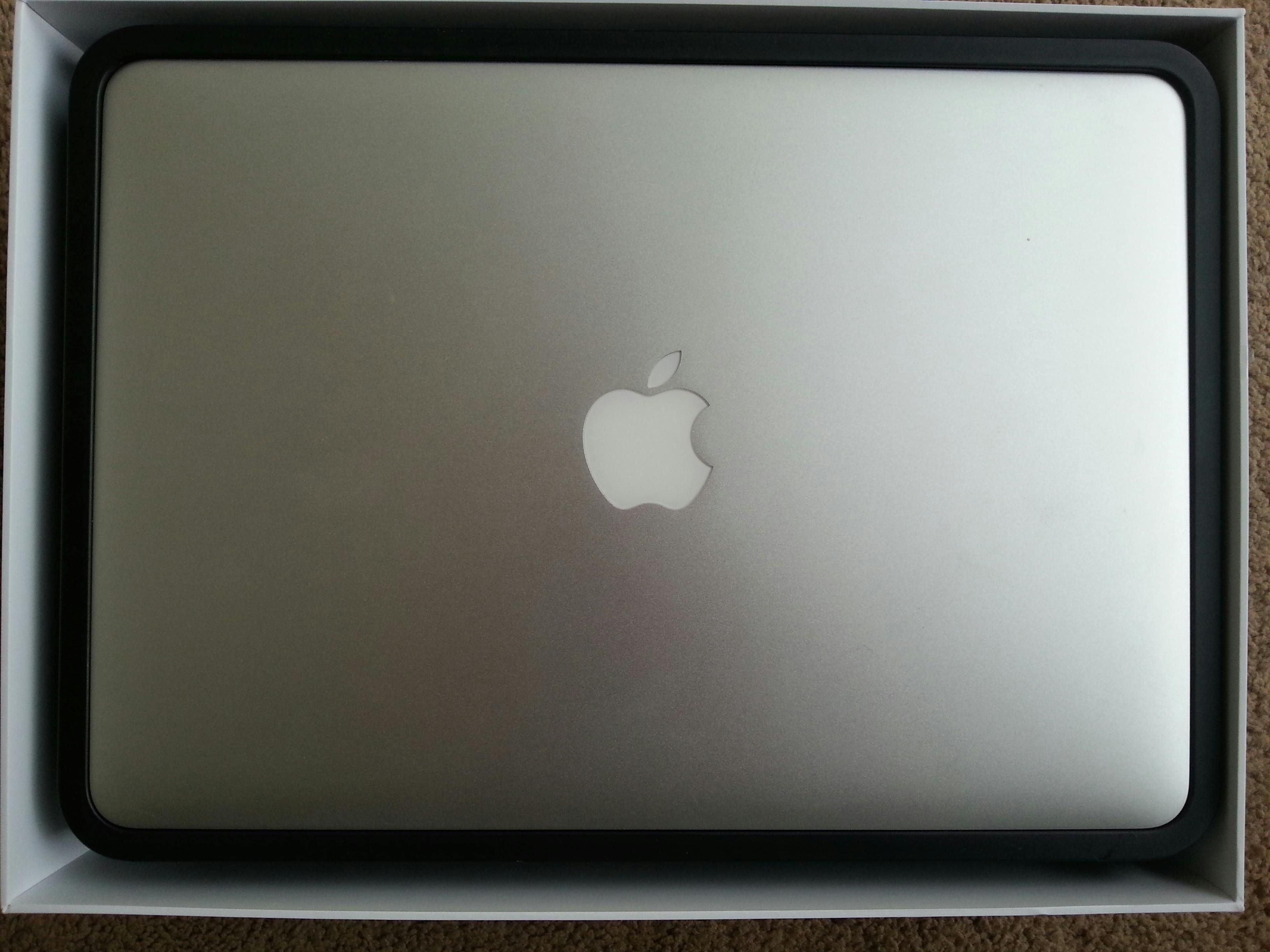
The shock was immediate, and what was supposedly “intuitive” was anything but.
The first thing I tried to do was plug in my monitor. Nope.
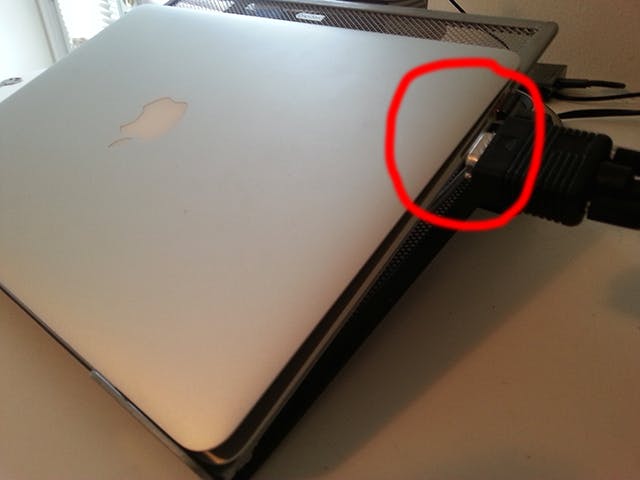
Then I thought it’d be nice to listen to some music.
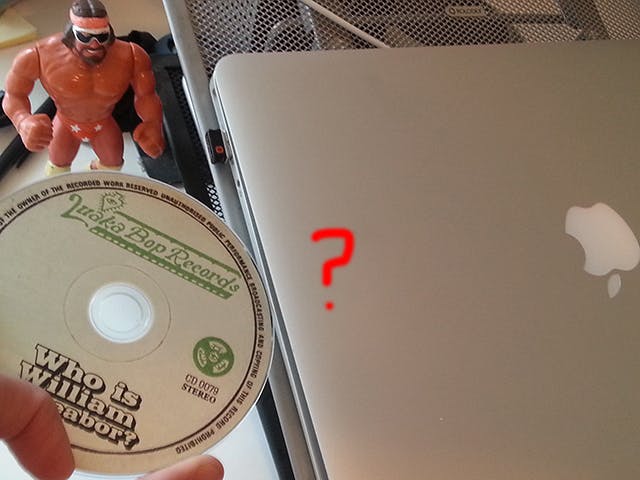
I needed to print something, but between my mouse and keyboard, my USB ports were already accounted for.
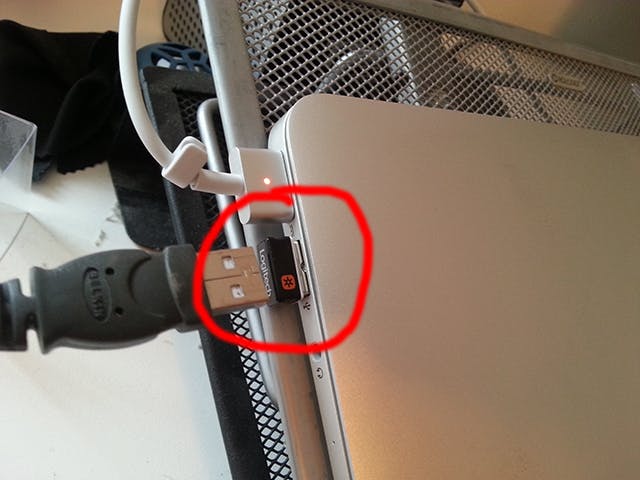
I just assumed such features were standard, like air conditioning in a new car or a bed in an Airbnb rental. Now I have to accessorize, with external drives and a Mini DisplayPort to VGA Adapter. (Doesn’t using external USB ports remind you of this Xzibit meme?)
Then came the real growing pains.
It takes a while to find your rhythm on any new keyboard, granted, but at this rate I’d have better luck tracking down Satoshi Nakamoto. It’s as if I’ve suffered a stroke and am having to learn to type all over again—slowly typing and pounding the space bar to ensure each key takes. It’s maddening. I was almost better off when two letters were broken. At least then I had both backspace and delete buttons to work with, and I wasn’t getting tripped up by this “command” function.
The only thing worse than a Mac keyboard? Trying to use a PC one instead.
I’ve spent the last few days at work as a walking “Explain Like I’m Five” Reddit thread, seeking counsel on the simplest of matters: “How do I get all of this junk off of the navigation bar?” “How do I make an em dash?” “What’s the Mac equivalent of ‘msconfig’?” It’s humiliating.
What I’ve come to realize is that many of the things that millennials consider innate simply aren’t. Scroll direction “natural”? Hardly.
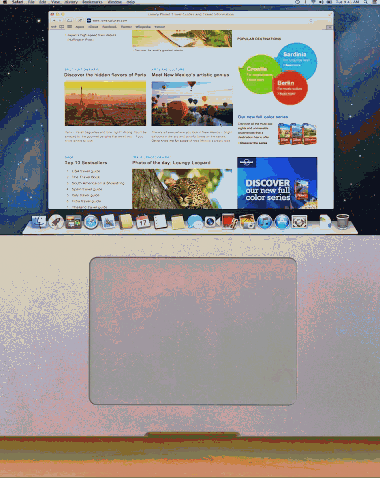
GIF via NathanDyer.me. How does it make sense to scroll like this?
It was several hours before I figured out how to right click. And the two-finger navigation on the trackpad? I had to watch this demoralizing YouTube video:
There are shortcuts for everything on a Mac—screenshots, smart quotes, deleting from the desktop, making snappy check marks, etc.—but until you’ve learned them, you’re Brendan Fraser in Encino Man, some Neanderthal baffled by the strange new world you’ve found yourself in.
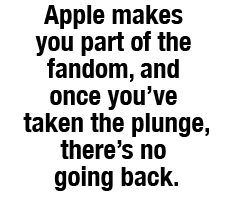 The whole transition is comparable from switching from skiing to snowboarding: You’re likely to spend a couple of days on your ass, frustrated and in need of private instruction, without any guarantee you’re going to prefer it in the end. And it surely gets harder as you get older.
The whole transition is comparable from switching from skiing to snowboarding: You’re likely to spend a couple of days on your ass, frustrated and in need of private instruction, without any guarantee you’re going to prefer it in the end. And it surely gets harder as you get older.
In the span of a week recently, I received an email from a reader that simply said “print,” and another from a relative who couldn’t figure out why I didn’t receive his first inquiry (he put “www.” before my address). I thought both were hysterical at the time (old people, amirite?), but I can sympathize a little better now.
As we appify our lives and generally become more familiar with specific pieces of technology, we risk losing sight of what it’s like to be a new user, and all of the quirky challenges and complications that come with it. When we forget that it’s not yet second nature for some to use three fingers in an upward motion on a track pad, we unintentionally raise the barrier for entry, especially for those with special needs.
Reflecting on the intuitive tech futurism of Spike Jonze’s Her, Zan McQuade poignantly wrote about her father’s struggle with Parkinson’s and the way it makes even the simplest tasks online almost insurmountable.
“I have a problem with the fact that our Internet seems to continue to rely on an assumed familiarity with how it works. It assumes a base knowledge of capability. Instead of blowing up the number of sites intended for those who are already part of the Internet—social networks, apps for bringing more of our Internet to us in the way we expect it—why aren’t we spending more of our efforts finding ways to bring the rest of the world to the Internet? I’m not talking about trying to get my dad on Twitter; I’m talking about finding ways to get benefits of the Internet—the connectivity, the freedom of information, the global outreach—to my dad without him having to buy into whatever it is we’re currently part of, both physically and philosophically.”
I couldn’t agree more, and on a micro scale, I can certainly relate.
Of course, my experience with a Mac hasn’t been all bad. The battery life is astounding, it boots up quickly, and I’ll never again have to worry about the suspiciously timed calamities that occur every time my Kaspersky subscription slips. Better still, there’s an entire new world of apps available for me to now explore. One of them might even make me not regret making this switch to begin with.
But for now, to borrow a line from Robyn Hitchcock, I wanna go backward.
Screenshot via YouTube

